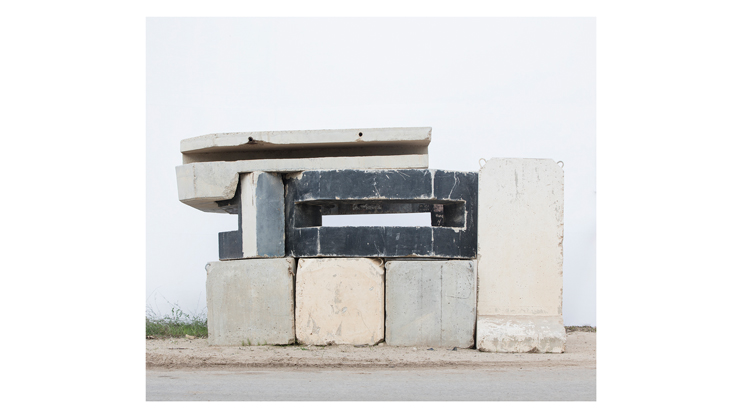Oded Balilty | Front | Scene of Events
After years of intensive work as a press photographer in the service of Associated Press (AP), which documents arenas of uprising, armed struggles, demonstrations and conflicts on a daily basis – for which he also won the Pulitzer Prize for Breaking News Photography in 2007 – Oded Balilty (b. 1979) found himself in the grip of a vague emotional block that prevented him from returning to these places.
The works on display at the exhibition “Front” were shot entirely in the past two years, as part of a project whose parameters Balilty carefully established for himself, as a way of dealing with this block. The work plan that he created for himself forced him to overcome the emotional difficulty and to return to specific places where he had previously covered news events as a press photographer: a bus stop in the West Bank settlement of Ariel; a guard post at the Nitzanim basic training base; concrete barriers along the Gaza border at Netiv Ha’asara and Nahal Oz; and a barbed-wire fence in the Palestinian village of Kharbatha Bani Harith. He set himself a strict work regime that echoes objective typological photography. This involved a strict protocol whose effectiveness required meticulous planning and preparation – including site visits to select the location, mark it, and suspend at the site itself a professional white backdrop of the type used in photography studios, thereby isolating the element photographed from its surroundings. The chosen scene was always shot from a full frontal angle, with no post-production digital editing and processing – that is to say, the image cropping and capturing were done in situ, in front of the stretched backdrop, deliberately cutting out the hubbub of life surrounding it.

Oded Balilty, Military Post Near Nahal Oz, Gaza Border, 2017, archival pigment print